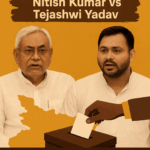The referendum in Australia, aimed at including Indigenous Australians in the country’s constitution by establishing an Indigenous advisory body to Parliament, has been projected to have failed. This initiative was led by Prime Minister Anthony Albanese as a means to provide greater representation to Aboriginal and Torres Strait Islanders, following a proposal put forward by Indigenous elders in 2017.
The “no” campaign appears to be leading in the preliminary results, and it is projected that New South Wales, Tasmania, and South Australia have voted against the proposed Voice to Parliament. Changes to Australia’s constitution require support from at least four of the nation’s six states, which is referred to as a “double-majority.”
The failure of this referendum is a setback to reconciliation efforts with Indigenous Australians and poses a political challenge to the Labor government, which had hoped the referendum would promote unity but instead exposed division and raised allegations of racism. Polls leading up to the vote had indicated widespread opposition to the Voice to Parliament, with concerns about its potential to create divisions based on race and a lack of clarity on how the advisory body would operate.
The failure of this referendum also adds to Australia’s history of unsuccessful referendums, with only eight out of 45 attempts having succeeded since Federation in 1901.










mom94n
mom94n